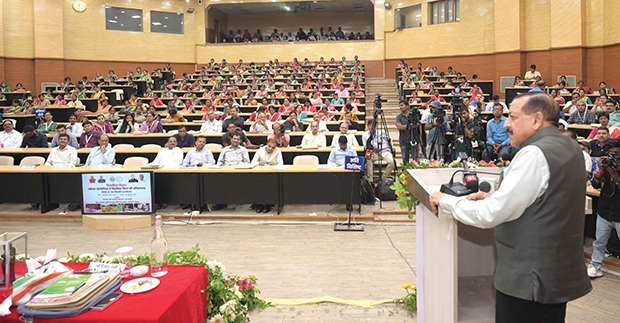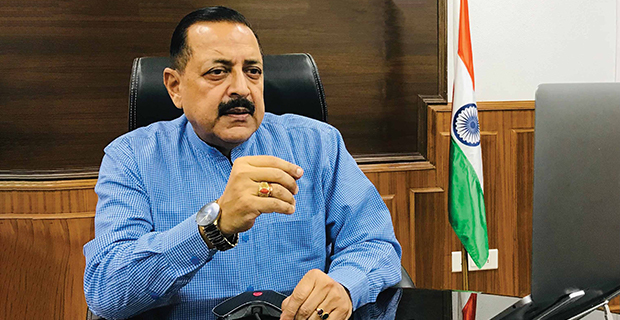Women Empowered
Union Minister Dr. Jitendra Singh spotlighted the growing leadership of women in India’s startup and development journey at a conference in New Delhi.
New Delhi: Around 76,000 startups in India today are led by women, many of them emerging from tier 2 and 3 cities, Union Minister Dr. Jitendra Singh said in July. He emphasized that India’s journey to becoming a developed nation by 2047 will be driven by empowered women and youth, as envisioned by Prime Minister Narendra Modi under the model of women-led development.
Speaking at a conference in the national capital, Dr. Singh said that over the past 11 years, the Modi government has centered its governance strategy around four pillars — the Poor, Farmers, Youth, and Women. “Women-centric governance has not only empowered individuals, but transformed society. What started as targeted welfare has grown into institutional leadership,” he told attendees.
The minister launched the Jeevika E-Learning Management System App, which aims to provide accessible education for women, and also unveiled the publication Shashakt Mahila, Samriddh Bihar, highlighting women’s contributions to the state’s progress.

Dr. Singh detailed the Modi government’s structured, phased strategy for women’s empowerment, built on four foundational stages. The first phase, Access and Inclusion in Institutions, led to landmark changes in India’s education and military sectors. The second, Scientific and Technological Empowerment, has supported women via schemes like WISE (Women in Science and Engineering), GATI, CURIE, and the Women Scientist Programme.
The third phase, Economic and Social Empowerment, expanded financial access for women. Over 48 crore Jan Dhan accounts have been opened for women, with over 60% of Mudra Yojana loans benefiting women entrepreneurs. More than 3 crore ‘Lakhpati Didis’ formed through Self-Help Groups (SHGs) are reshaping rural economies. Under the Pradhan Mantri Awas Yojana, homes registered in women’s names offer both shelter and dignity.
The fourth phase, Workplace Reforms and Legal Sensitivity, introduced inclusive policies — such as six-month paid childcare leave for government employees, pension eligibility for unmarried or divorced dependent daughters, and maternity benefits even in cases of stillbirth.











Comments.